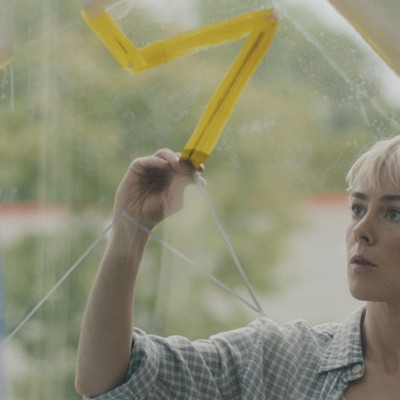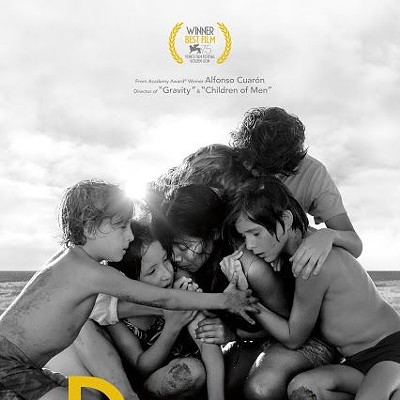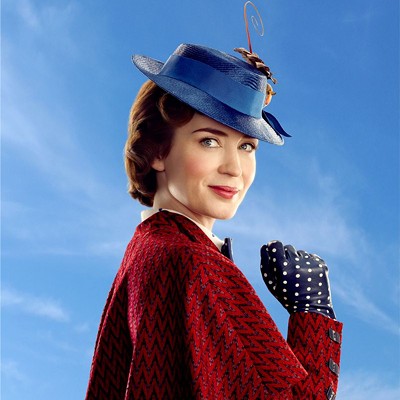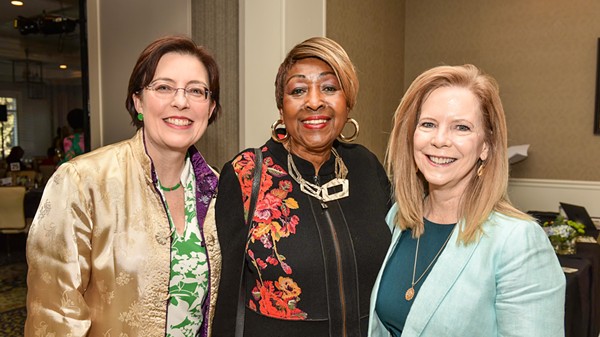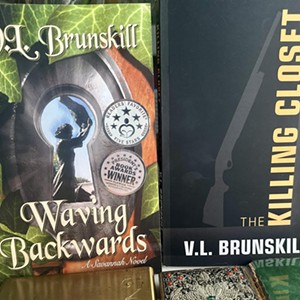American Gangster ***
Ever since 1990’s one-two punch of GoodFellas and Miller’s Crossing, it’s been mostly downhill for the mob movie, and even acclaimed efforts like Donnie Brasco and The Godfather Part III couldn’t light my fire (and, despite the insistence of friends over the years, I have yet to be stirred enough to tackle six seasons of The Sopranos). And make no mistake: What’s offered in American Gangster isn’t particularly fresh, as it’s yet one more tale about a confident crime figure who rises to the top before taking that inevitable plunge down the elevator shaft. Yet for all its familiar trappings, director Ridley Scott and writer Steven Zaillian invest their tale with plenty of verve, even if they frequently soft-pedal the deeds of their real-life protagonist. Denzel Washington, perhaps our most charismatic actor, has been charged with bringing Frank Lucas to the screen, and, as expected, he turns the Harlem kingpin into a magnetic menace, a self-starter who, after serving as an apprentice to bigwig Bumpy Johnson (Clarence Williams III) throughout the 1960s, becomes a millionaire by eliminating the middle man in the drug trade, thereby infuriating the Italians who are used to being at the apex of this particular food chain. American Gangster could easily have been called American Capitalist or American Dreamcatcher -- it’s a Horatio Alger tale shot up with heroin -- but perhaps sensing that Lucas’ fine qualities might likely overshadow the fact that he’s selling death to his own people (only one sequence hammers home the horrors brought about by Lucas’ exploits), Scott and Zaillian offer up a standard movie hero in Richie Roberts (Russell Crowe), the honest cop tasked with busting open the New York/Jersey drug racket. Roberts could have come across as a cardboard saint, but thanks to Crowe’s deft underplaying, he’s an interesting figure and strikes a nice counterbalance to the more dynamic Frank Lucas. American Gangster is long but not overlong -- its 160 minutes are well spent -- and while it never achieves the epic grandeur of, say, The Godfather (for one thing, the real-life denouement prohibits any Scarface-style theatrics), it manages to pump a measure of respect back into a genre that thrives on it.
Across the Universe ***1/2
Not simply a good movie; it’s one of the best films of the year. One can nitpick about the thin plot, though it’s sturdy enough to function as a support beam to director Julie Taymor’s outlandish ideas. Taking place in the late 1960s, the story, credited to Taymor and the team of Dick Clement and Ian La Frenais (the blokes responsible for the smashing Irish R&B flick The Commitments), finds Liverpool laborer Jude (Jim Sturgess) traveling to America, whereupon he finds a best friend in college kid Max (Joe Anderson) and a lover in Max’s kid sister Lucy (Evan Rachel Wood). Eventually, the three end up in New York, at which point Jude develops his passion for drawing, Max gets drafted into the army, and Lucy finds her political consciousness awakened. The kids experience good times (a cross-country bus trip, chaperoned by Bono’s Dr. Robert) and bad times (riots aplenty), yet through it all, they realize that “all you need is love,” and that anything is possible “with a little help from my friends.” Combining the song sampling technique of Moulin Rouge with Forrest Gump’s journey through the turbulent 60s (and owing reams to Hair as well), Across the Universe dramatizes the past while also serving notice to the present (the Vietnam War material can’t help but stir images of Iraq).
Dan in Real Life **1/2
You’ll laugh! You’ll cry! You’ll sing! You’ll reflect! The trailer doesn’t lie: Dan In Real Life wants to offer it all -- a fine sentiment when a movie can pull it off, an example of trying too hard when it doesn’t. Dan In Real Life falls somewhere in the middle: There are individual scenes that work nicely, even if the finished product doesn’t produce the flood of emotions one might have reasonably expected. Writer-director Peter Hedges, whose past scripts (including About a Boy and Pieces of April) were far more fine-tuned to the give-and-take dynamics of testy relationships between people, soft-pedals this material, offering a warm and fuzzy tale of a popular newspaper writer (Steve Carell) whose column, “Dan In Real Life,” offers practical advice that he can’t seem to apply to his own life. A widower with three daughters, Dan travels to Rhode Island for the annual family get-together with his parents (Dianne Wiest and John Mahoney), his siblings and their significant others. He falls for Marie (Juliette Binoche), a Frenchwoman he meets in a book store, only to be devastated when he learns that she’s the present girlfriend of his brother Mitch (Dane Cook). As Marie tries to sort out her feelings and Dan suffers in silence, the other family members parade through the story offering their own nuggets of advice to the downtrodden columnist. It’s nice to see this normal a family on screen, but the movie pays a price for its politeness, since there’s never any sense that feelings might be hurt or egos bruise.
We Own the Night **1/2
Beyond one terrific and mesmerizing action sequence, We Own the Night, set in 1988 New York City, is another example of (crime) business as usual. Bobby Green (Joaquin Phoenix) is a nightclub manager at odds with his brother Joseph (Mark Wahlberg) and his father Burt (Robert Duvall), both respected police officers. Circumstances force Bobby to become even more estranged from his family, but that all changes when a powerful drug dealer (Alex Veadov) orders a hit on Joseph. The young cop barely survives, but this spurs Bobby to choose sides in the fight between law and disorder. He falls squarely on the side of right, risking his own life for the sake of his family. Phoenix and Wahlberg (who previously co-starred in Gray’s The Yards and serve as producers here) are solid but unremarkable, and even a great actor like Duvall can’t do much with his threadbare role.
Elizabeth: The Golden Age **
Like most sequels, Elizabeth 2 proves to be markedly inferior to its predecessor, which was a more original piece in that it examined the life of the Queen of England (played by Cate Blanchett) as she came into her own as both a woman and a ruler. With interesting characters flitting about in the shadows (most notably Geoffrey Rush’s loyal but lethal advisor, Sir Francis Walsingham) and an unsettling sense of menace lurking around every corner (after all, it was hard being Protestant in a Catholic world order), the first film deserved much of the lavish praise heaped upon it. By comparison, Elizabeth’s second coming feels less like a royal offering than a common period biopic which mistakes stuffiness for stateliness.
Into the Wild ***
Despite (or, in some cases, because of) his meticulous Method madness, Sean Penn’s performances -- even the fine ones -- can best be described as overwrought. But place the actor behind the camera, and the opposite holds true. And with each passing film (The Indian Runner, The Crossing Guard, The Pledge), it’s clear that his confidence and comfort level have grown at a startling rate. Given this maturation, it’s no surprise that Into the Wild finds Penn turning in his best directorial effort to date. Adapting Jon Krakauer’s based-on-fact novel, he has fashioned a somber, reflective film about a young man whose actions are so open to interpretation that where some will see an idealistic dreamer, others will see an obnoxious brat; where some will see a martyr, others will see a moron. Emile Hirsch delivers a strong performance as Chris McCandless, a well-to-do college graduate who, instead of following the distinguished career path laid out for him by his parents (William Hurt and Marcia Gay Harden), elects to donate all his savings to charity and head for the wilderness. Determined to leave society behind, he treks all over North America’s untamed terrain, finding himself as far south as Mexico and as far north as Alaska. But while Chris (who has since renamed himself Alexander Supertramp) may think he has little use for humankind, he finds he still can benefit from the kindness and occasional company of particular people. 
He meets a wide range of interesting individuals during his travels, among them an elderly man (Hal Holbrook) who engages in philosophical debates with the lad, a Midwestern farmer (Vince Vaughn) who offers him practical advice, and a hippie couple (Catherine Keener and Brian Dierker, a real-life river guide making the year’s best acting debut) who view him as a surrogate son. Functioning as a bookend piece to Werner Herzog’s excellent documentary Grizzly Man, it demonstrates that nature is as beastly as it is beautiful, and even noble aspirations run the risk of getting trampled under its imposing weight. 
All of the characters have their say, yet even when people’s opinions run counter to each other’s, everyone is making sense and no one is being disingenuous. Penn obviously feels enormous sympathy (and perhaps a kinship?) for his protagonist, yet he doesn’t present him as a saint, only a charismatic if troubled kid whose defining feature is that he managed to live a life less ordinary.
-do college graduate who, instead of following the distinguished career path laid out for him by his parents (William Hurt and Marcia Gay Harden), elects to donate all his savings to charity and head for the wilderness.
The Heartbreak Kid **1/2
The original 1972 version (with a screenplay by Neil Simon) is one mean-spirited movie, a prickly comedy about an unlikable nebbish (Charles Grodin) who suddenly decides to abandon his plain-Jane wife (Jeannie Berlin) on their honeymoon once he spots a beautiful blonde WASP (Cybill Shepherd) on the Miami beach. But in this version, the groom (Ben Stiller) is generally a nice guy, his new bride (Malin Akerman) is an outright nightmare, and the beach bunny is no longer a callow, self-centered brat but a sweet-natured and down-to-earth gal (Michelle Monaghan). The movie earns its R rating, thanks to plenty of salty language, some acrobatic sex scenes and one startling crotch shot. 
Much of it is funny (stay through the closing credits for a satisfying capper), some of it merely infantile, but the picture ends with a clever twist, and Akerman proves to be a real trouper throughout as she degrades herself in the name of modern movie comedy.
The Kingdom **1/2
Just as 1978 saw the release of two Vietnam War flicks that complemented each other in their portrayals of the skirmish — The Deer Hunter and Coming Home — along comes September 2007 and its entree selection of two Iraq War dramas. The Kingdom is basically a Rambo retread outfitted with a thin veneer of topical import. Director Peter Berg (Friday Night Lights) appears to be an American apologist at heart, which may explain why, after a fascinating title sequence illustrating the United States’ complicated ties to Saudi Arabia the movie quickly devolves into a standard us-against-them revenge flick. The film opens with a shocking sequence in which a base for American families in Riyadh, Saudi Arabia, is destroyed by terrorists, thereby prompting a group of elite FBI agents to undergo a secret mission to find the culprits once the Saudi and U.S. governments both balk at creating an international incident. Collectively, the four agents — played by Jamie Foxx, Chris Cooper, Jennifer Garner and Jason Bateman — are devoid of much in the way of personality, but that’s OK: Their only purpose in this story is to kill Middle Easterners. Lots of them. 
In the Valley of Elah ***1/2
1/2 Writer-director Paul Haggis will forever be lambasted in many circles because his arch drama Crash unfairly shanghaied the clearly superior Brokeback Mountain at the Oscars. But those quick to write off Haggis as a pandering huckster tend to forget that he also penned the exquisite screenplays to two Clint Eastwood triumphs, Million Dollar Baby and Letters From Iwo Jima. It’s that Paul Haggis who shows up with In the Valley of Elah, a powerful drama that employs a murder-mystery template to initially camouflage what ultimately proves to be the picture’s true intent: Examine the repercussions of war on the psyches of the youngsters we ask (or order) to defend us in battle. Tommy Lee Jones, in a superlative performance, stars as Hank Deerfield, a retired officer trying to find out why his son went AWOL upon returning from a tour of duty in Iraq. It’s obvious from the outset that Hank won’t find his son alive, and once it’s ascertained that the boy was murdered, the morose father teams up with equally glum detective Emily Sanders (Charlize Theron) to solve the case. On its own terms, the mystery is set up and followed through in a satisfying matter, and only those expecting an elaborate Agatha Christie-style unmasking of the killer will be disappointed in this aspect of the story, which wraps up well before the actual movie does. Clearly, Haggis’ main story is about the toll that the Iraq War — and, by extension, all battles, especially those (like Iraq) created for bogus reasons — takes not only on the soldiers sent to participate in the bloodshed but also on their families and friends. For all his surface simplicity, Hank Deerfield is a complicated and conflicted individual, a conservative patriot who would never question the military but who can sense that its ideals, along with those of the country he loves, have changed since his time of service. Even more daringly (and likely to spark debates among war vets), Haggis’ film attempts to depict the manner in which the specter of war can follow a soldier back to civilization and inform every subsequent decision and action.
Feast of Love **1/2
A sprawling, messy yet occasionally affecting adaptation of Charles Baxter’s novel, Feast of Love finds Oscar-winning director Robert Benton (whose last film was the grossly underrated The Human Stain) orchestrating a series of intertwined storylines that all push force the notion that the true meaning of life can be found in the arms of a loved one. Morgan Freeman once again plays his stock role, a gentle soul who’s smarter than everyone else around him; here, that translates into the character of a happily married and semiretired professor who notices that love — and, in some cases, lust, deception and betrayal — is all around him. In what could probably be construed as first among equals in terms of the competing storylines, he befriends a coffee shop owner whose wife (Selma Blair) leaves him for another woman and who then becomes involved with a realtor (Radha Mitchell) who can’t seem to break off her affair with a married man (Billy Burke). The Mitchell-Burke relationship is given plenty of screen time on its own; ditto the puppy-love romance between two young coffeehouse employees (Alexa Davalos and Toby Hemingway). Happiness and tragedy are doled out in equal measure — usually falling where we expect — but a fine cast and some touching moments help make the film if not exactly a feast, then at least an edible appetizer that will keep our hunger for a great movie romance at bay a while longer.
Eastern Promises ***
One of the central gags in Knocked Up involves the efforts of Seth Rogen and his pals to create a website that catalogues all the nude appearances made in motion pictures by actresses of all ranks. Of course, sites of this nature really do appear all over the Internet, though it’s unknown (at least by me) if a similar site exists that tackles male movie-star nudity with such dedication. If so, then Viggo Mortensen’s turn in David Cronenberg’s Eastern Promises will be right at the top of the site’s “Most Searches” list. In one of the climactic scenes, Mortensen’s Nikolai Luzhin, a taciturn chauffeur who works for the Vory V Zakone outfit (the Russian mafia) in London, is relaxing in a steamroom when he’s attacked by two knife-wielding (and clothed) assassins. Without time to even pick up his discarded towel, he ends up fighting both assailants in the buff, and thanks to cinematographer Peter Suschitzky’s camera angles, we can examine Mortensen from vantage points that even his personal doctor probably hasn’t seen (it’s astonishing that the prudes on the MPAA board gave the film an R instead of an NC-17). Some might think that Cronenberg is merely giving the ladies in the audience equal time, but on a thematic level, the skirmish makes sense: Nikolai has been living a life full of betrayal and deceit, and it’s time to strip down to his essence in order to make an attempt to reclaim his true identity. In a sense, Eastern Promises is a bookend to the last film made by Cronenberg and Mortensen: 2005’s excellent A History of Violence, about an ordinary cafe owner who may or may not have been a vicious mobster in his earlier years. Both films run along parallel tracks, full of whispery menace, marked by probing studies of masculinity at its extreme boundaries, punctuated with bursts of sexual and violent excess, and coping with abrupt endings.
The Brave One **1/2
The Brave One is basically a retread of Death Wish, only with a sex change for its protagonist and, given the director (The Crying Game’s Neil Jordan) and star, a more distinguished pedigree. It also purports to add dramatic heft to the moral implications of the situation at hand, with an ad line that blares, “How Many Wrongs To Make It Right?” But the movie itself clearly doesn’t believe in its own promotion, resulting in a finished product that works as exploitation (like Death Wish) but fails at anything more socially relevant. Jodie Foster stars as Erica Bain, the host of a particularly dreadful-sounding NYC radio show called Street Walk. She and her fiancé David (Naveen Andrews) are blissfully happy, but everything changes after a brutal attack by street punks leaves David dead and Erica in a coma. Once Erica awakens, she’s become a different person, afraid of the city she calls home and terrified by even the thought of leaving her apartment. Mustering up her courage, she goes out and illegally buys a gun for protection. But quickly learning that happiness is a warm gun, she sets about using the weapon on anyone who threatens her, from punks on the subway to a killer in a convenience store. Detective Sean Mercer (Terrence Howard) obviously has no love for the victims, but he feels that it’s nevertheless his duty to stop this vigilante. Via a massive coincidence, he also becomes friends with Erica, little suspecting (at least at first) that she and the vigilante are the same person. Foster is rarely less than excellent, but for years now, she’s settled into making movies in which she portrays a largely desexed woman who’s all business and no pleasure (Panic Room, Flightplan, Inside Man, etc.). Mind you, I’m not suggesting an insipid romantic comedy opposite someone like Bruce Willis, but I’m sure there’s a happy medium to be found somewhere.
3:10 To Yuma ***
3:10 to Yuma proves to be a rarity among remakes. It doesn’t slavishly copy the original, nor does it update it for modern times. Based on a short story by Elmore Leonard, the 1957 3:10 to Yuma retains its status as a solid Western, typical of the psychologically rooted oaters that emerged in force during that decade. In Glenn Ford’s old role, Russell Crowe plays Ben Wade, a notorious outlaw who’s finally captured by the authorities and scheduled to be transferred via train to the prison in Yuma, Arizona. Dan Evans (Christian Bale in the Van Heflin part) is a rancher by nature — he’s so mild-mannered that his own wife (Gretchen Mol) and son (Logan Lerman) are often disappointed in him — but because he’s about to lose his home and cattle, he agrees to help transport Wade for $200.
Mr. Bean's Holiday**
By borrowing from Jacques Tati, Jerry Lewis and silent-cinema icons like Buster Keaton and Charlie Chaplin, Rowan Atkinson managed to concoct his own singularly unique comic creation in the bumbling Mr. Bean. It’s just a shame that the actor has yet to find a feature film to do his character justice. Mr. Bean’s Holiday has some amusing moments scattered throughout but they’re not enough to sustain an entire picture. 
Rush Hour 3 *
Exactly 50 years ago, Max Von Sydow was exploring philosophical issues of life and death in Bergman’s masterpiece The Seventh Seal; now, he’s shunted to the background to make room for the increasingly unfunny antics of Chris Tucker. If there’s a more depressing commentary to be made on the current state of cinema, I can’t imagine what it might be.
Hairspray ***1/2
One of this summer’s few out-and-out delights, smoothing out but never compromising the issues that made John Waters’ original film such a quirky delight. An ode to being different, Hairspray stars delightful newcomer Nikki Blonsky as Tracy Turnblad, an overweight teenager who won’t let her pleasantly plump figure get in the way of following her dream in 1960s Baltimore. And her dream is to become famous, preferably by showing off her dance moves on The Corny Collins Show, a local American Bandstand-style program that’s a hit with the kids. Her obese mom Edna (John Travolta in drag) is afraid her daughter will get hurt, but her dad Wilbur (a warm Christopher Walken) encourages her to go for it. Impressing Corny Collins himself (X-Men’s James Marsden), not to mention the show’s reigning pinup star Link Larkin (Zac Efron), Tracy does indeed land a coveted spot on the show, much to the disgust of Link’s girlfriend Amber Von Tussle (Brittany Snow) and her wicked mom Velma (Michelle Pfeiffer). Compounding the tension is that Tracy has become friends with the blacks who are allowed to perform on the program once a month (on “Negro Day”), an open-minded attitude that infuriates the racist Velma to no end. The film’s hot-topic issues are all presented in the realm of feel-good fantasy, meaning that reality has no place in this particular picture. But that’s not to say the movie is insincere in its intentions, and when Tracy and “Negro Day” host Motormouth Maybelle (Queen Latifah) lead a march promoting “Integration, Not Segregation,” it’s hard not to get swept up in the emotionalism of the piece.
Harry Potter and the Order of the Phoenix ***
Those who like their Potter black will find much to appreciate in Harry Potter and the Order of the Phoenix, the fifth and moodiest of the J.K. Rowling adaptations to date. Chris Columbus’ first two entries — both underrated — focused mainly on fun and games, with the subsequent installments helmed by Alfonso Cuaron and Mike Newell taking on decidedly darker dimensions. The level of malevolence is raised even further here, thanks to the taut direction by unknown David Yates and a forceful performance by series lead Daniel Radcliffe. With only one to two years separating each Potter flick, it’s been easy to spot the relative growth of Radcliffe (as well as costars Rupert Grint and Emma Watson) as he sprouted from wide-eyed tyke to troubled teenager. Yet between the last film (Goblet of Fire) and this new one, it’s startling to note how the actor and the character seem to have aged multiple years, a testament to the maturity Radcliffe brings to the role. 
Villainy abounds in The Order of the Phoenix, with Lord Voldemort (Ralph Fiennes) haunting Harry’s every move, a fluttering fascist named Dolores Umbridge (Imelda Staunton) taking over the Hogwarts school, and an escaped prisoner known as Bellatrix Lestrange (Helena Bonham Carter) arriving late to kill off a popular character. Add to those threats Harry’s issues of abandonment and estrangement, and it’s no wonder the lad can’t keep those roiling emotions in check. In this respect, Phoenix operates not only as a story-specific fantasy flick but also as a universal teen angst tale, a far-flung Rebel Without a Cause in which the protagonist tries to comprehend the adult world he’s on the verge of entering while simultaneously struggling to cut the umbilical cord of childhood. Because of this slant, this emerges as the most dramatic of the five films to date. 



